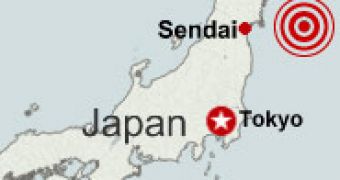Security researchers advise users to exercise caution when searching for information about the massive earthquake and tsunami waves that hit Japan, because they might end up on scareware pages.
The Internet is abuzz with updates on the devastating effects of the 8.9-magnitude earthquake that hit today 130 kilometers off the coast of Japan and triggered 10-meter-high tsunami waves.
There are at least 500 confirmed deaths and over 110,000 people missing so far as a result of the catastrophe and their number keeps growing by the hour.
Unfortunately, cyber criminals are trying to exploit disasters like this for profit by poisoning search results with links leading to fake antivirus programs.
Known as black hat search engine optimization (BHSEO), these attacks can be observed after every major event that manages to attract considerable interest from the public.
We've seen BHSEO campaigns following the Haiti earthquake last year, the 2009 California wildfires, the recent floods in Australia, Brazil and the Philippines and even the New Zealand Christchurch earthquake last month.
Fake antivirus programs, also known as scareware or roguware, attempt to trick users into purchasing useless licenses by falsely claiming their computers are infected.
Scareware distribution has been one of the most profitable cyber criminal businesses during the past several years and the generated income is commonly used to finance other types of illegal activities.
"Blackhat SEO leading to rogue antivirus is still very much a common Web attack. We recommend that our readers get the latest news from trusted media outlets to prevent being victimized by this blackhat SEO," Trend Micro security researchers write.
The vast majority of BHSEO attacks have traditionally occurred on Google, but since the company has significantly improved its detection, attackers are increasingly targeting other search engines as well.

 14 DAY TRIAL //
14 DAY TRIAL //